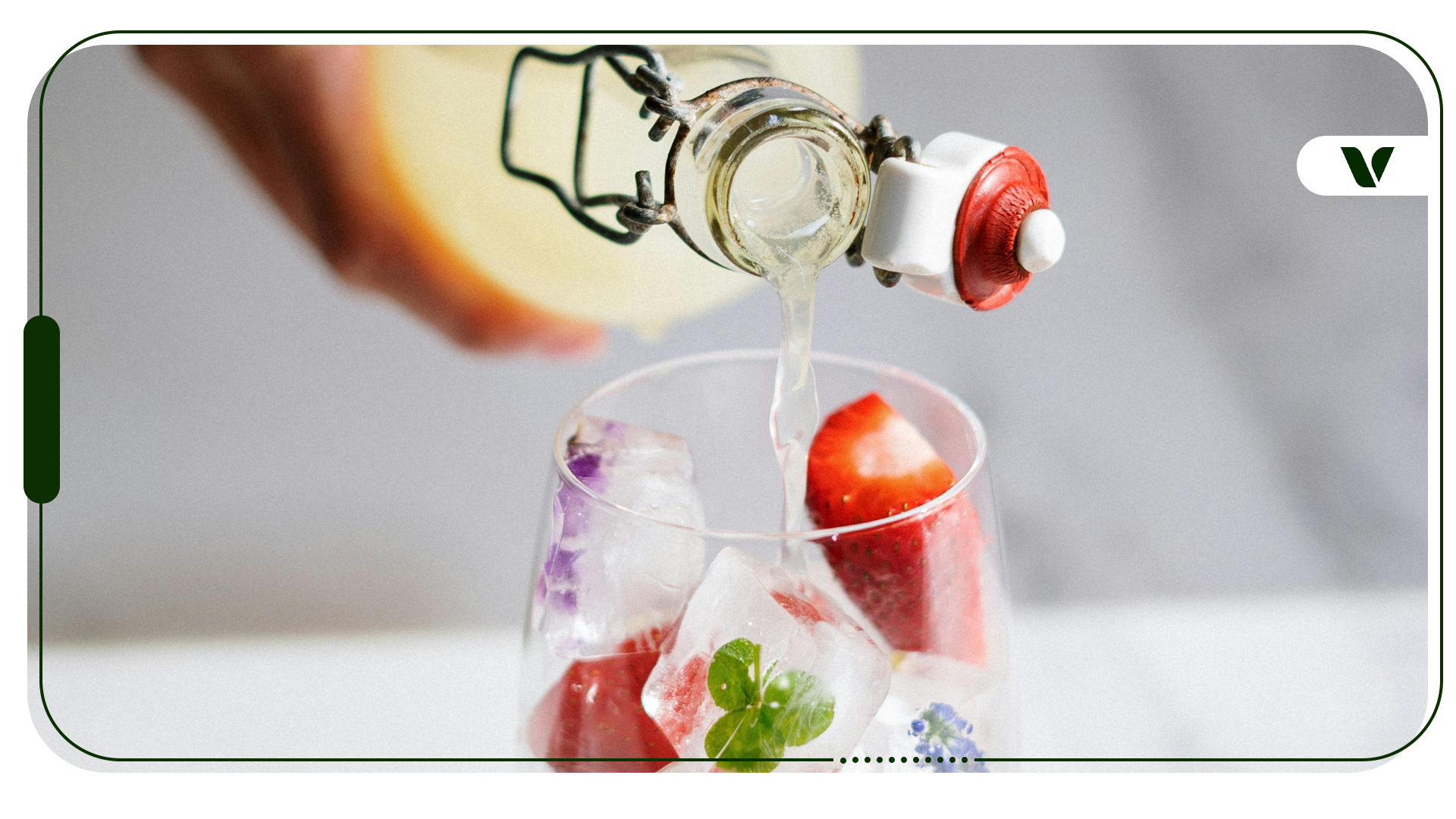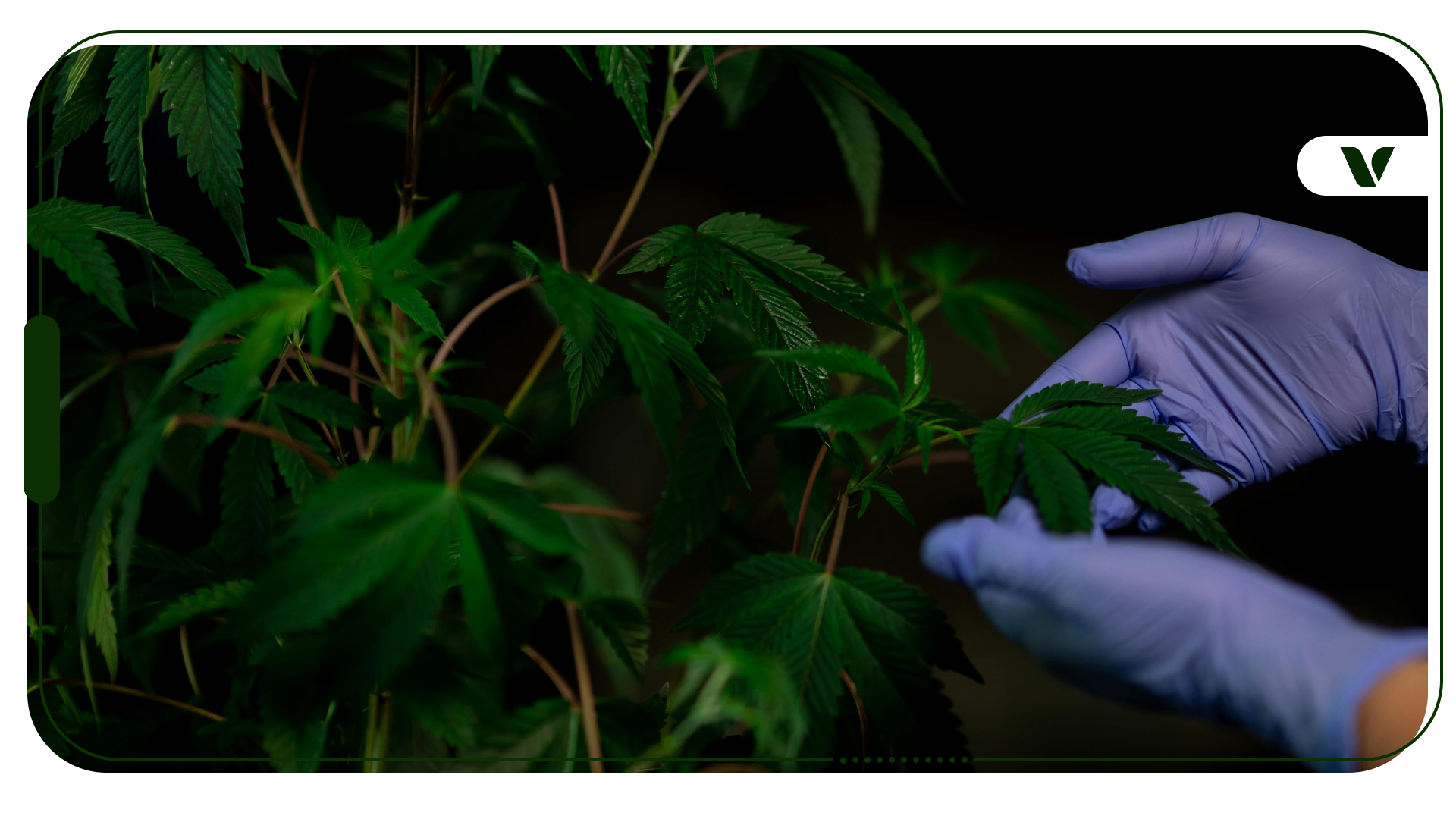Cannabis-infused products are increasingly popular because of how versatile they are. Tetrahydrocannabinol (THC) syrup is one of those products that cannabis users have found to be an extremely versatile form of liquid THC. THC syrup might just be the versatile staple every canna-kitchen needs!
In this article, you’ll discover what THC syrup is, a few easy DIY cannabis-infused simple syrup recipes, what and how long a THC syrup high is like, and some delicious ways to use your canna syrup!
What is THC Syrup and What are the Benefits of Consuming It?
THC syrup, also known as cannabis-infused syrup or canna syrup, is a thick, sweet liquid with a similar consistency to cough syrup and a candy-like flavor that masks the taste of cannabis. While THC syrup is the most commonly made cannabis syrup, CBD syrups also exist.
THC syrup is often a great alternative to cannabis-infused fats as there are more ways to use cannabis-infused syrups. Because weed syrup is another ingestible method of cannabis concentrate, it provides results similar to other THC edibles or edible cannabis concentrates.
One of the biggest advantages of THC syrup over edibles like gummies is the ability to control your dosage more precisely. For those who prefer smaller THC doses or micro-dosing, cannabis-infused syrup makes it easy to measure out just the right amount. Likewise, if you want a slightly higher dose than what a typical edible provides, you can simply add a bit more syrup rather than having to bite off a piece of another edible like when consuming THC gummies.
Like other THC edibles, some of the most common uses for cannabis-infused products include relieving:
Of course, THC syrup is also great for those who simply want to enjoy the many therapeutic benefits of cannabis and as an effective way to relax after a long day.
Compared to other cannabis consumption methods such as smoking, THC in edible forms can pose less of a health risk while offering a more potent and longer-lasting high.
Cannabis edibles in any form are also a bit more discreet, meaning no one will notice that splash of THC syrup in your otherwise normal-looking beverage. This is one of the many reasons THC-infused syrups have become increasingly popular due to their versatility and delicious taste.
DIY Cannabis Simple Syrup
Fortunately, mastering canna syrup is an easy task, meaning you’ll want to make this syrup again and again! This cannabis-infused simple syrup is made of only four ingredients, plus an option to add in the flavoring of your choice.
The great thing about DIY THC syrups is they are customizable not only in flavor but also because you can use the weed strain of your choice.
Before you begin making THC syrup, it’s important to note that cannabis needs to be decarboxylated first. Decarocylating weed is a necessary first step because it activates the cannabinoids in raw cannabis. By activating the cannabinoids, cannabis now has its therapeutic and psychoactive properties when consumed as an edible versus being smoked.
There are two popular ways to make THC syrup: glycerin-based and tincture-based. Tincture-based THC syrup uses alcohol, resulting in a thinner, faster-acting syrup with a stronger cannabis taste. Glycerin-based THC syrup is thicker, sweeter, and more palatable but takes longer for the body to absorb. Two separate recipes are listed below to make each option.
How To Make THC Syrup With Glycerin
The tools you’ll need:
- Small sauce pot
- Measuring cups
- Measuring spoons
- Mesh strainer*
- Cheesecloth*
The ingredients you’ll need:
- 1 – 3.5 grams of decarboxylated cannabis flower
- 1 cup water
- 1 cup sugar
- 2 tablespoons of vegetable glycerin
- Optional: flavoring of your choice (1 teaspoon to 1 tablespoon of extract, 1 cup of dried flower petals, herbs, etc.)
Steps:
- Add water and sugar to a small sauce pot and heat the mixture on medium-low heat until the sugar dissolves.
- Add decarboxylated cannabis flower to the pot and simmer for 30 minutes. If adding any herbs or other flowers for flavor, add those as well.
- Remove heat and add vegetable glycerin. If you are using liquid flavor extracts, add them. Allow to sit for five minutes before straining the flower from the liquid. Store in an airtight bottle (bonus points if the bottle is opaque and blocks light).
Tincture-Based THC-Infused Simple Syrup Recipe
To make an alcohol tincture-based THC syrup. First, you will need to make your own THC tincture using this guide. Or you can also purchase tinctures in various flavors at your local dispensary.
Ingredients:
- 1 cup water
- 1 cup sugar
- 1-3 tablespoons THC tincture
- Optional: flavoring of your choice (1 teaspoon to 1 tablespoon of extract, 1 cup of dried flower petals, herbs, etc.)
Steps:
- Add water and sugar to a small sauce pot and heat the mixture on medium-low heat until the sugar dissolves.
- If adding flavor with herbs or other flowers/aromatics, add those now and let simmer for 20-30 minutes on low heat.
- Remove from heat and stir in tincture and any liquid flavor extracts. Store in the fridge in an airtight, dark bottle.
If this recipe still seems too intensive, consider using an herbal infusion device like the LĒVO Lux. With precise time and temperature controls, this machine makes infusing simple syrups or honey as simple as possible — but without compromising quality.
Pro Storage Tips: If you’re looking for a way to store these homemade cannabis-infused syrups, a fun way to do so is to use bottles intended for coffee syrups. These have a spout that makes dosing out the syrup easier, and if you decide to make a variety of flavored THC syrups, this can be a fun way to keep them organized. Labeled mason jars can also be used for larger batches.
Temperature is one of the most important factors when storing THC syrup. High heat can break down the cannabinoids, weakening the potency and altering the consistency. For best results, store your syrup in a cool place, ideally between 60°F and 70°F (15°C to 21°C). You can also store it in your refrigerator.
How Long Does a THC Syrup High Last? (And Dosing Tips)
Because THC syrup is still technically a form of edible marijuana, the onset and duration of the high are comparable to other cannabis edibles or tinctures.
Why You Should Get Your Medical Marijuana Card
Veriheal has satisfied millions of patients nationwide by giving them access to these benefits
- Larger purchase limits
- Peace of mind
- Enhanced legal protection
- Access to higher potency strains
- Save up to 25% on cannabis purchases
- Skip the line at the dispensary
On average, THC syrup acts faster than THC gummies or other cannabis-infused foods, with effects beginning within about 30 minutes of consumption.
While THC syrup effects vary, they typically last 2 to 6 hours based on factors like metabolism, tolerance, and product type.
If you’ve never used THC syrup or any other form of edible marijuana before, it’s important to start with a low dose. If it’s your first time using THC edibles, try 5 milligrams of a THC edible to see how it affects you. For daily cannabis users who are new to edibles, 10 milligrams might be a better starting point. Always wait two hours before taking any more THC edibles of any kind!
Be sure to measure out the amount of THC syrup you use the first time and take notes of how much you use so you can adjust your dose accordingly next time. Keep in mind the potency of the particular strain you use for each batch as well.
The Delicious Ways to Include THC Syrup in Your Daily Diet
THC syrup is so versatile that there are endless ways it can be used to enhance your food or drink. Lemonade, juice, tea, carbonated beverages—you name it. Essentially, any beverage, especially drink mixes that call for simple syrup or equal amounts of sugar and water, is perfect for making a THC syrup-infused beverage! For foods, it can be drizzled over top or mixed in, depending on the type of food.
Ultimately, you’ll start to get creative with the many ways you can infuse your homemade THC syrup into your daily diet.
In the meantime, here are a few unique and fun ideas to get you started.
DIY Cannabis Cocktails: A Hangover-Free Alcohol Beverage Replacement
Cannabis drinks continue to increase in popularity—and for good reason. Many are replacing alcohol in drinks with cannabis-infused drinks because they can be enjoyed as a replacement when drinking with friends, but without the nasty alcohol hangover the next day.
Making a drink using THC-infused syrup means you have more options on not only the beverage type but also the amount of THC you want in your drink based on your tolerance level. A great way to start would be to add it to your favorite mocktail mix!
If you choose to add THC syrup to a beverage that does contain alcohol, reduce your usual edible dose significantly when combining the two. Alcohol can intensify THC’s effects or lead to a “crossfaded” effect, so it’s best to limit alcohol and edible intake when used in combination.
THC Honey Butter Glaze
Mix the THC syrup with melted butter and honey for a sweet glaze on baked goods.
THC Snow Cones
Drizzle THC syrup over shaved ice with other fruit syrups for a refreshing summer edible experience.
The Ultimate “Wake-and-Bake” Breakfast, Brunch, or Breakfast for Dinner
If smoking isn’t your thing, that doesn’t mean you can’t enjoy an edible version of the classic wake-and-bake. Since THC syrup is so versatile, there are numerous ways to incorporate it into your breakfast, such as adding it to your cup of coffee or tea in the morning. Of course, you could also add maple flavoring to your cannabis-infused syrup to pour over waffles, French toast, pancakes, etc. Creating a “breakfast for dinner” spread to enjoy a sweet cannabis-filled dinner after a long day is also fun!
Consuming Tinture-Based THC Syrup Sublingually
If you’d rather just consume your THC syrup straight-up, you can do so with a dropper by pacing a few milliliters under your tongue. Unlike other tinctures that have a bitter alcohol sting and strong cannabis flavor, the sweetness of THC syrups masks both of these negative effects.
Frequently Asked Questions
What method is best for making THC syrup?
The best method depends on preference, but glycerin-based and tincture-based syrups are both popular and effective ways to make THC syrup.
How do you make liquid THC?
Liquid THC is made by infusing cannabis into a simple syrup using either decarboxylated cannabis flower with glycerin or a pre-made THC tincture.
What is THC syrup made of?
THC syrup typically consists of cannabis concentrate, water, a sweetener (such as sugar or glycerin), and optional flavoring.
Is THC syrup stronger than edibles?
THC syrup can have similar potency to other edibles but may act faster and allow for more precise dosing.
What is the best THC syrup?
The best THC syrup depends on personal preference, but homemade versions allow for customization in flavor and potency.
Is THC syrup the same as lean?
No, THC syrup is a cannabis-infused product, whereas lean is a dangerous and addictive mixture containing codeine and antihistamines.
What does THC syrup taste like?
THC syrup has a sweet, candy-like flavor that can be customized with different extracts, herbs, or fruit flavors.
Author, Share & Comments









